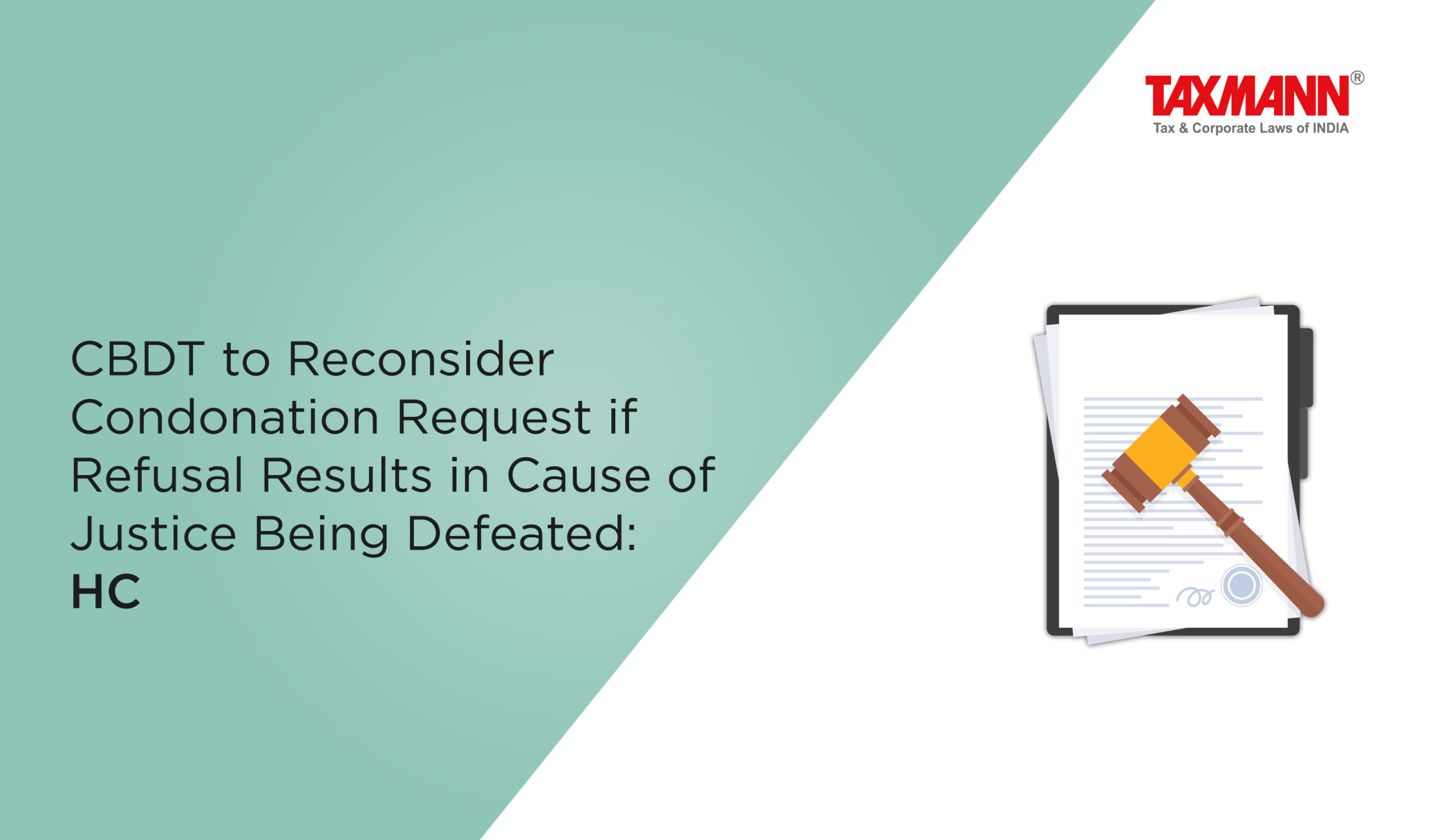CBDT to Reconsider Condonation Request if Refusal Results in Cause of Justice Being Defeated: HC
- Blog|News|Income Tax|
- 2 Min Read
- By Taxmann
- |
- Last Updated on 20 September, 2023

Case Details: R.K. Madhani Prakash Engineers J V v. Union of India - [2023] 154 taxmann.com 16 (Bombay)
Judiciary and Counsel Details
-
- K.R. Shriram & Firdosh P. Pooniwalla, JJ.
- Bharat Raichandani for the Petitioner.
- Akhileshwar Sharma & Ms Shilpa Goel for the Respondent.
Facts of the Case
Assessee, was engaged in executing the projects launched by the Municipal Corporation of Greater Mumbai (MCGM). For the assessment year 2016-17, the assessee filed its return of income belatedly with a delay of 43 days.
Later, the assessee realized that it inadvertently filed the Return of Income as AOP instead of firm. Assessee submitted an income tax return under section 119(2)(b) and sought condonation of delay in filing the return. However, the request for condonation of delay was rejected.
Aggrieved by the order, the assessee filed a writ petition to the Bombay High Court.
High Court Held
The High Court held that the principles of natural justice would require the assessee to be provided the statement submitted by the field authorities so that the assessee could have effectively responded.
Moreover, in its petition, the assessee stated the partners were all available in India, but the key person whom the joint venture partners entrusted to advise on the filing of ROI was out of the country. These were issues which certainly the assessee could have been called upon to appear personally or through videoconferencing to explain, which had not been done.
Further, the impugned order recorded that the assessee failed to prove the genuine hardship. In the case at hand, the applicant was seeking a refund of a large amount of Rs. 82,13,340. Refusing to condone the delay can result in a meritorious matter being thrown out at the very threshold and the cause of justice being defeated.
The authorities fail to understand that when the delay is condoned, the highest that can happen is that the cause would be decided on merits after hearing the parties. It was viewed that the authority’s approach should be justice-oriented to advance the cause of justice. If the refund is legitimately due to the applicant, the mere delay should not defeat the claim for refund.
Therefore, the Board was directed to decide the question of hardship and correctness and genuineness of the refund claim in light of the observations made above.
List of Cases Referred to
-
- Sitaldas K. Motwani v. DGIT (International Taxation) [2010] 187 Taxman 44/323 ITR 223 (Bom.) (para 8).
Disclaimer: The content/information published on the website is only for general information of the user and shall not be construed as legal advice. While the Taxmann has exercised reasonable efforts to ensure the veracity of information/content published, Taxmann shall be under no liability in any manner whatsoever for incorrect information, if any.

Taxmann Publications has a dedicated in-house Research & Editorial Team. This team consists of a team of Chartered Accountants, Company Secretaries, and Lawyers. This team works under the guidance and supervision of editor-in-chief Mr Rakesh Bhargava.
The Research and Editorial Team is responsible for developing reliable and accurate content for the readers. The team follows the six-sigma approach to achieve the benchmark of zero error in its publications and research platforms. The team ensures that the following publication guidelines are thoroughly followed while developing the content:
- The statutory material is obtained only from the authorized and reliable sources
- All the latest developments in the judicial and legislative fields are covered
- Prepare the analytical write-ups on current, controversial, and important issues to help the readers to understand the concept and its implications
- Every content published by Taxmann is complete, accurate and lucid
- All evidence-based statements are supported with proper reference to Section, Circular No., Notification No. or citations
- The golden rules of grammar, style and consistency are thoroughly followed
- Font and size that’s easy to read and remain consistent across all imprint and digital publications are applied



 CA | CS | CMA
CA | CS | CMA
